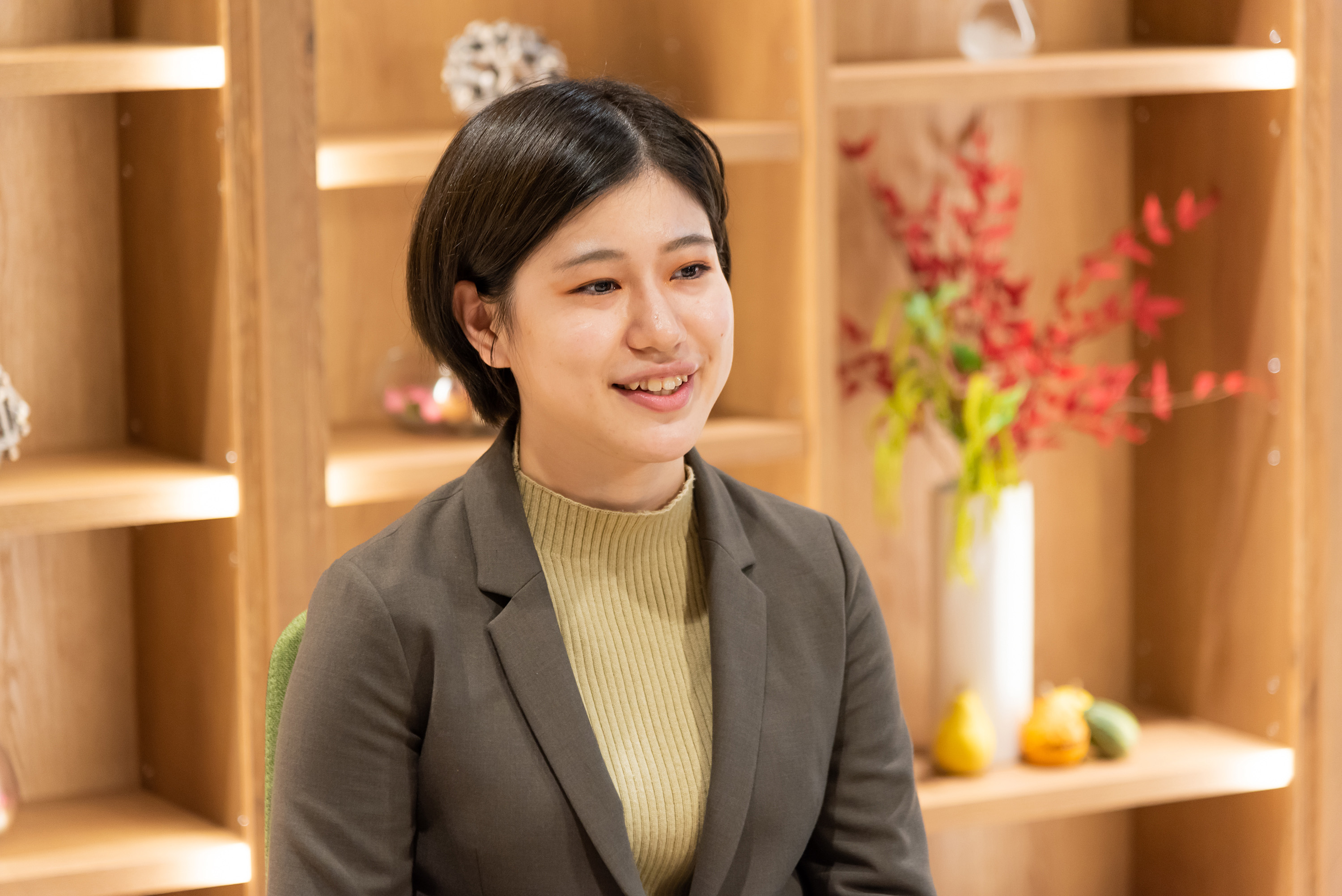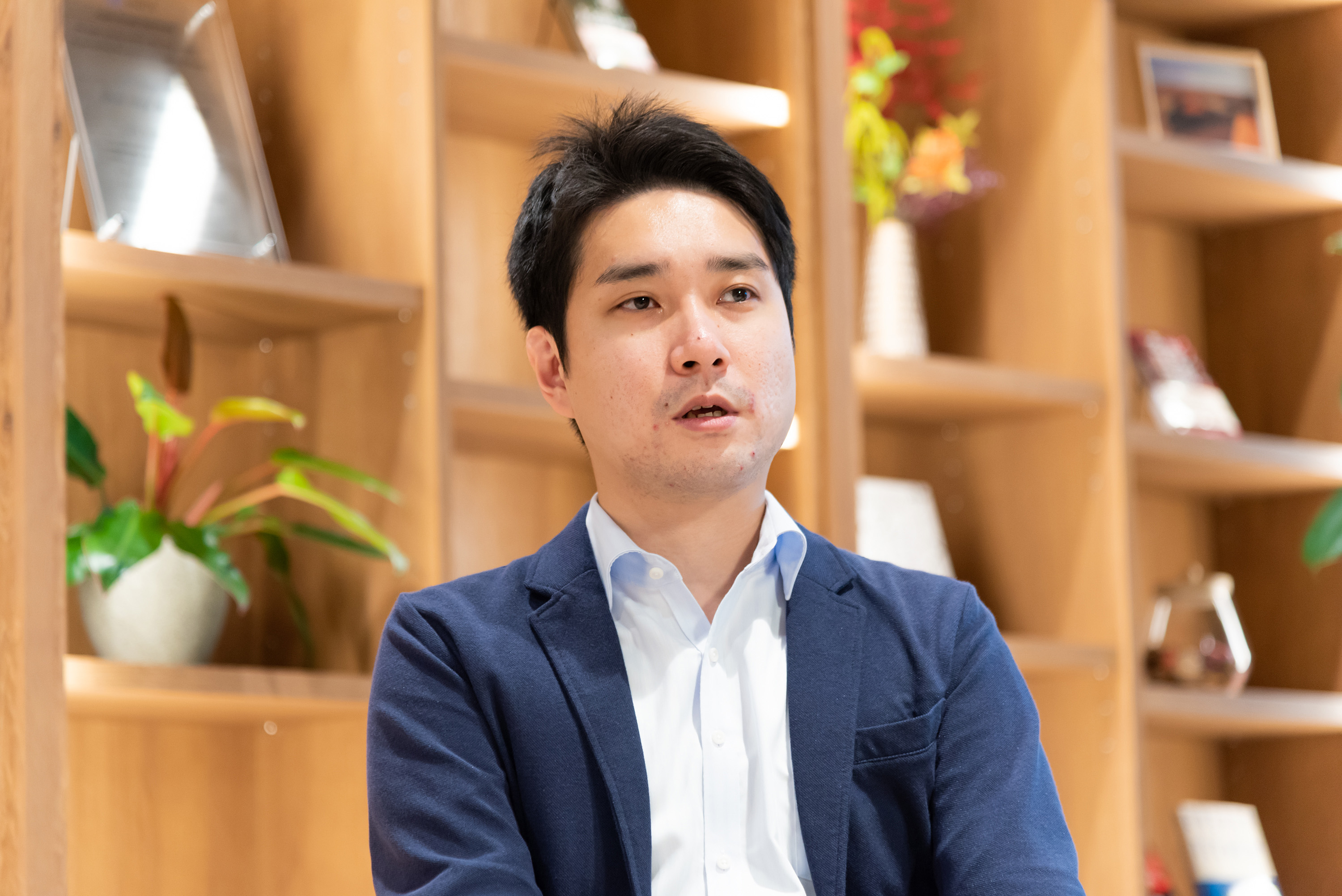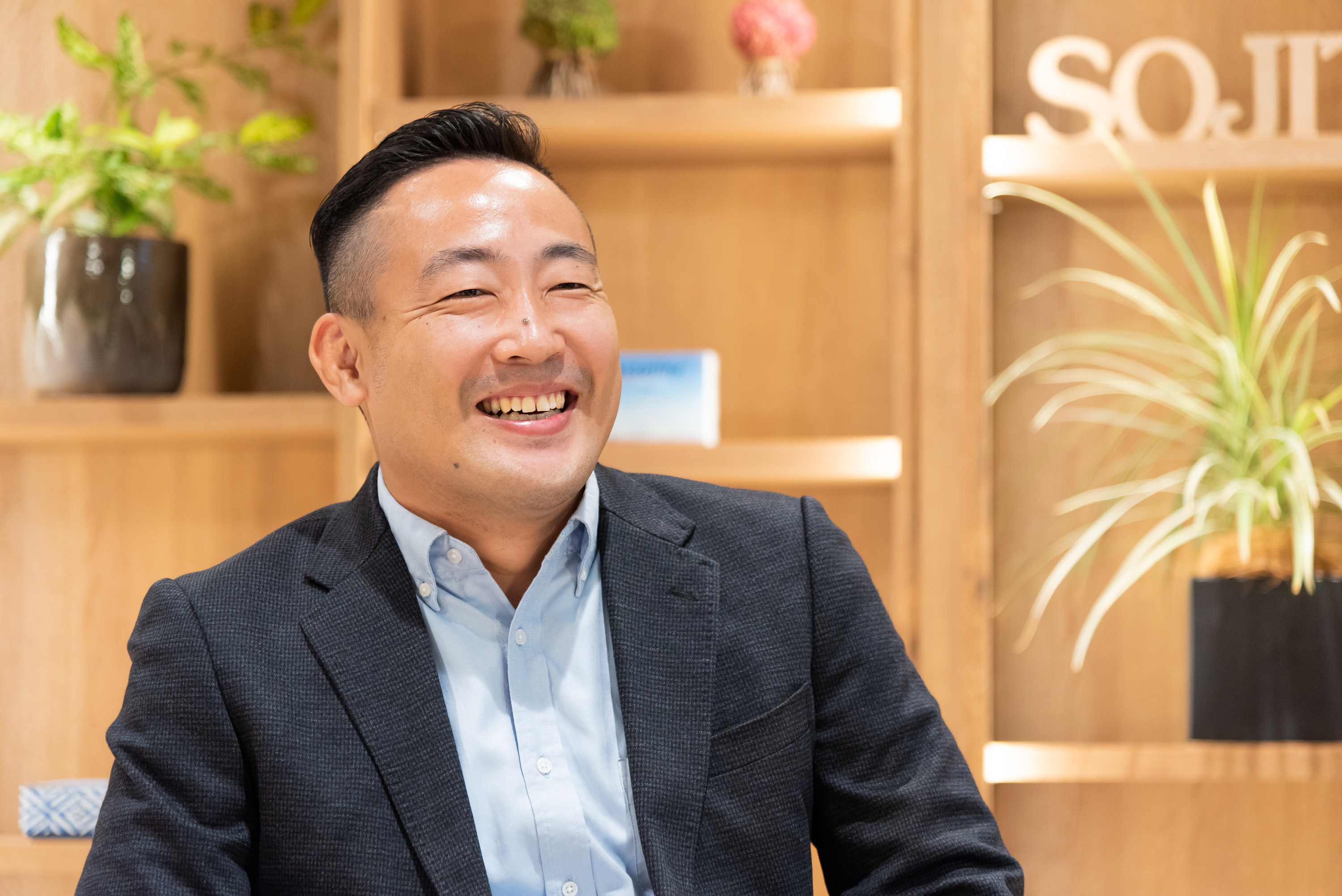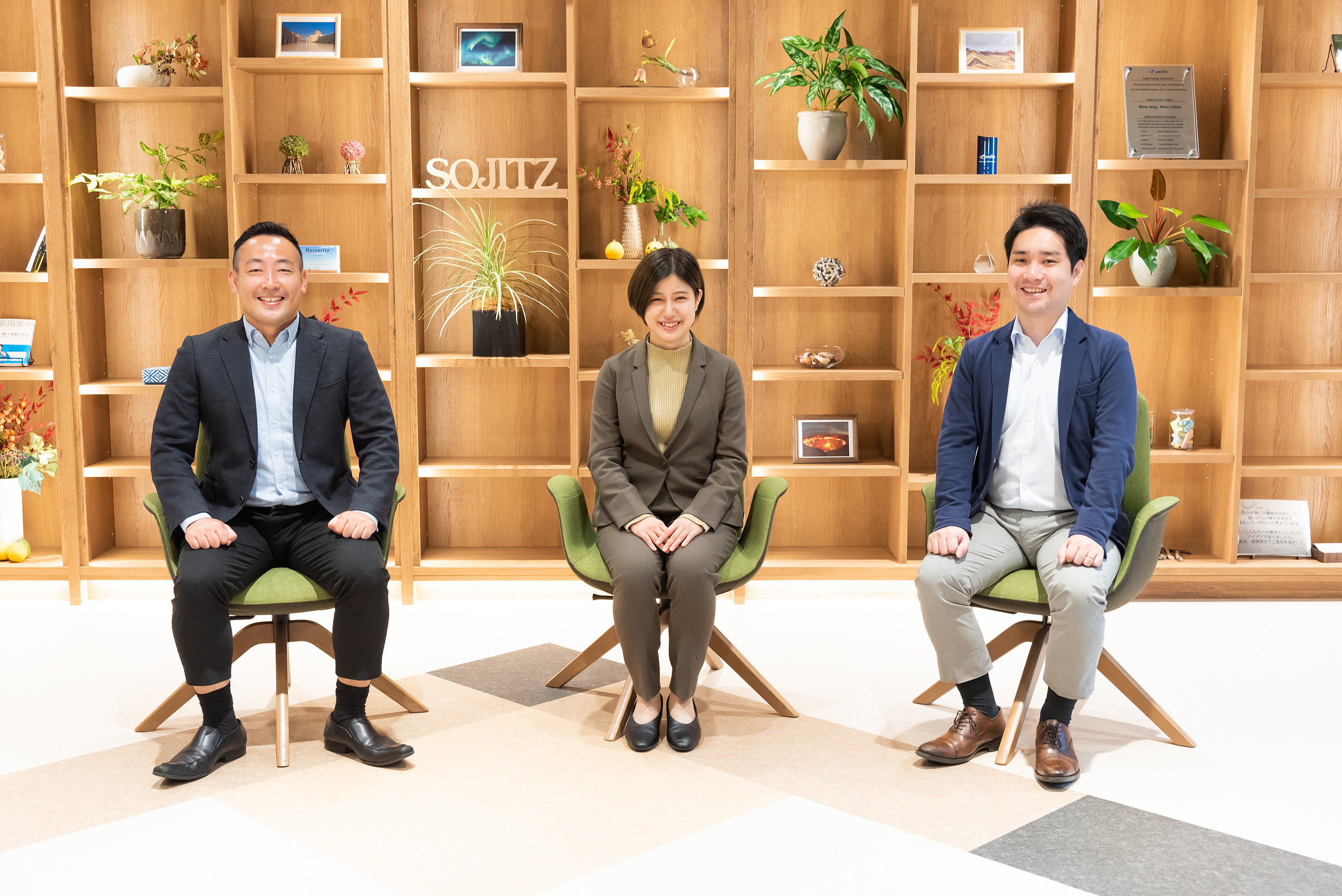New Employees + Peer Mentors and Senior Mentors
Mentee: Miho Otomasu / Ferroalloys Sect., Metal Resources Dept., Metals, Mineral Resources & Recycling Division
Peer mentor: Kensaku Kawazoe / Ferroalloys Sect., Metal Resources Dept., Metals, Mineral Resources & Recycling Division
Senior mentor: Tetsuya Takahashi / Planning & Administration Sect., Planning & Administration Office, Metals, Mineral Resources & Recycling Division
Feb. 7, 2022
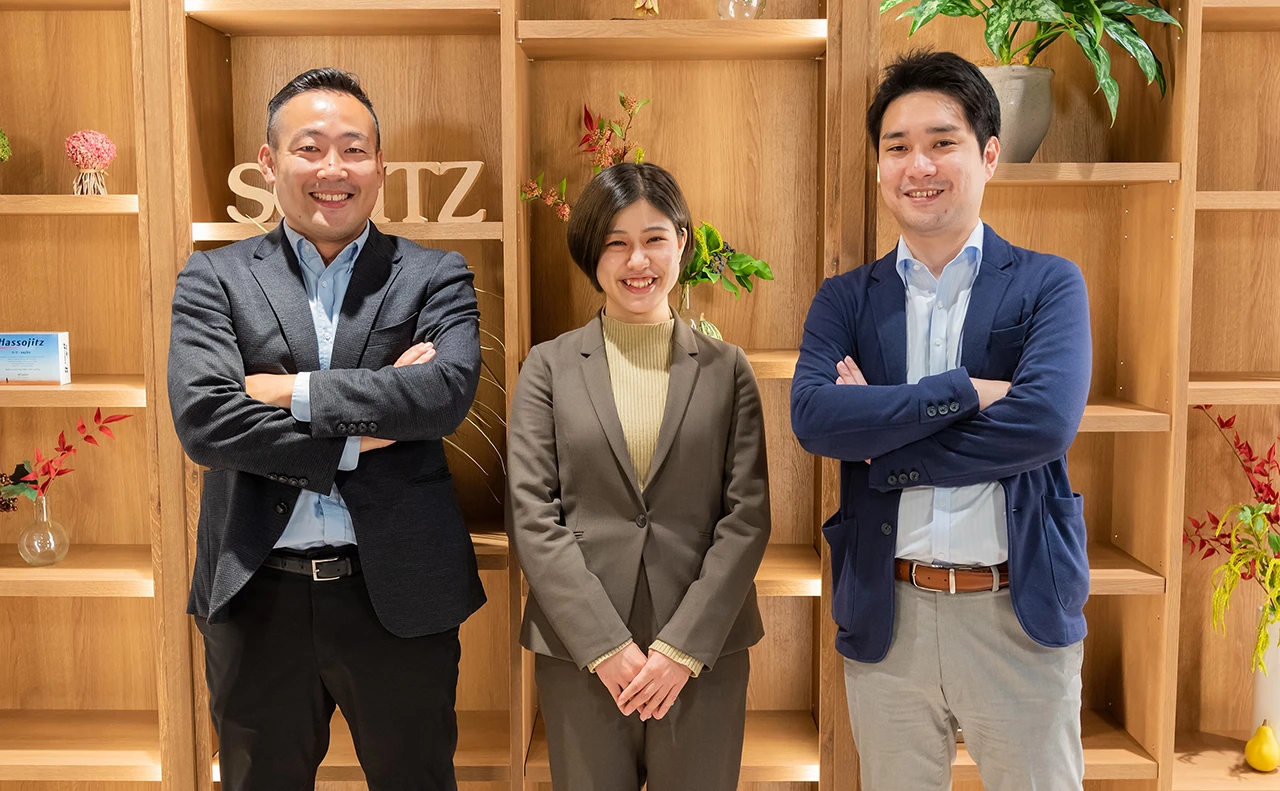
Kawazoe: Miho was my first mentee as part of the peer mentor program. She joined the company in April 2020 during the pandemic, and she had to do much of her work remotely at the start. I believe this was a particularly challenging experience for a new employee to work remotely.
Otomasu: My peer mentor, Kensaku Kawazoe, emphasized that Sojitz employees hold themselves to a high standard of professionalism. He was therefore deliberate in teaching me key skills like how to effectively use appropriate business language and write business communications. I’m not the best at dealing with stress, but my peer mentor’s encouraging words kept me from ever feeling down. If anything, I felt motivated by his support to work harder for his sake, and for the sake of the team.
Kawazoe: We have many exemplary employees at Sojitz, and I asked my mentee to consider how she could emulate these models. Ultimately, however, companies are organizations made up of people, and people need support with more than just their work duties. The mentor system is set up so that new employees can bring any concerns they might have to their senior mentors, who are separate from the peer mentors. I think this structure helps create more well-rounded individuals.
Takahashi: Senior mentors are generally older than peer mentors and have worked in multiple departments, so we are often able to explain the company’s overall vision and offer advice on career or life planning. I personally learned all kinds of helpful information from the senior colleagues I worked with early on in my career, so I have tried to fulfill that same role for my mentee. While we only meet once a month, there are times when she points out how something we’re discussing relates back to a previous conversation. It’s nice to know that she remembers what I share with her, and it makes my work as a mentor feel worthwhile.
Otomasu: As business division employees, we represent the face of the company. While I feel frustrated with myself at times for not meeting expectations, one thing I’ve noticed since joining Sojitz is that I don’t think I’ve ever seen a group of people that work so hard to constantly improve. At Sojitz, I see employees who, no matter their age, keep pushing to reach new heights and involve those around them as they take on new challenges. I want to be this kind of dedicated employee.
Takahashi: At Sojitz, we take a collective approach to employee education in which a new employee’s supervisor and other colleagues all come together to educate new employees, not just peer and senior mentors. This additional backup gives us peace of mind as mentors and allows us to do the best job possible.
Otomasu: My peer mentor taught me that when you are struggling with something and don’t know where to start, it’s best to think of things from the other person’s perspective. My senior mentor taught me that it’s important to be aware of what you’re trying to accomplish as you carry out business negotiations. These are two pieces of advice that have stuck with me, and they have become major guiding principles that I rely on in my work.
Note: Employee titles and affiliations reflect those at the time of the article’s publication.

